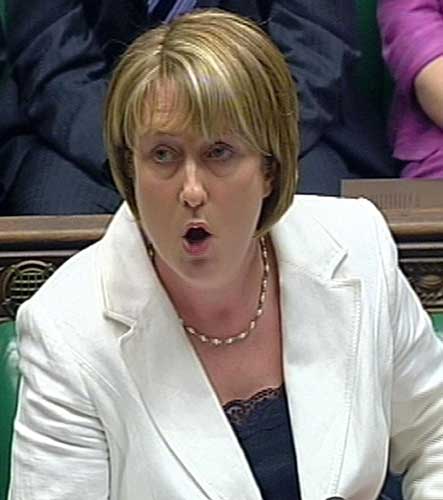Peers strike new blow against 42-day law
Change to pre-trial detention is unconstitutional, say Lords

Your support helps us to tell the story
From reproductive rights to climate change to Big Tech, The Independent is on the ground when the story is developing. Whether it's investigating the financials of Elon Musk's pro-Trump PAC or producing our latest documentary, 'The A Word', which shines a light on the American women fighting for reproductive rights, we know how important it is to parse out the facts from the messaging.
At such a critical moment in US history, we need reporters on the ground. Your donation allows us to keep sending journalists to speak to both sides of the story.
The Independent is trusted by Americans across the entire political spectrum. And unlike many other quality news outlets, we choose not to lock Americans out of our reporting and analysis with paywalls. We believe quality journalism should be available to everyone, paid for by those who can afford it.
Your support makes all the difference.Proposed anti-terrorism laws to detain suspects for up to 42 days will be seriously undermined this week when senior peers condemn them as politicised and unconstitutional.
Allowing Parliament to vote on extending the period of detention beyond 28 days has "serious implications" for the finely balanced separation of powers between the executive, the legislature and the judiciary, a House of Lords report will warn.
The report is by the Lords Constitution Committee, whose members include four former cabinet ministers and one ex-lord chief justice. The decision to extend the detention period should be in the hands of judges, and not politicians, the report will say.
The peers will suggest that the move, a major concession introduced by Jacqui Smith, the Home Secretary, to win over rebels ahead of a close-run Commons vote in June, was made for political reasons and was not in the best interests of justice.
Accusations that it was a political fix will come as a fresh blow to Gordon Brown and threaten to derail his hopes of pushing through the Counter-Terrorism Bill, which will be put to a vote in the House of Lords in October.
The controversial measure to extend detention without charge for terror suspects was approved by MPs in June by a majority of just nine.
It faces being defeated by the House of Lords in October. If that happens, the Government may use the Parliament Act to force it on to the statute book.
The peers' report will be published on Tuesday, but The Independent on Sunday has learnt that it contains stinging criticism of the measure to give MPs a say over the permitted length of pre-charge detention.
The committee includes the former lord chief justice Lord Woolf, former Labour cabinet ministers Lord Rodgers and Lord Morris of Aberavon, and the former Tory cabinet ministers Lord Goodlad and Lord Lyell.
Baroness Manningham-Buller, the former head of MI5, made clear the Lords' opposition to extending pre-charge detention to 42 days during a debate on the second reading of the Bill last month.
She said: "In deciding what I believe on these matters, I have weighed up the balance between the right to life – the most important civil liberty – the fact that there is no such thing as complete security and the importance of our hard-won civil liberties.
"Therefore, on a matter of principle, I cannot support the proposal in the Bill for pre-charge detention of 42 days.
"Our legislation covering the Security Service refers to the protection of parliamentary democracy. I have a plea: handling national security should, as far as possible, be above party politics, as it has been for most of my career."
Other high-profile figures have joined in opposition to 42 days, including the former lord chancellor Lord Falconer, the former attorney general Lord Goldsmith and the Director of Public Prosecutions, Sir Ken Macdonald.
The Government insists that extension of the detention period is purely a "reserve power" and would only take place with the support of the Director of Public Prosecutions, as well as the backing of Parliament in a vote.
Join our commenting forum
Join thought-provoking conversations, follow other Independent readers and see their replies
Comments